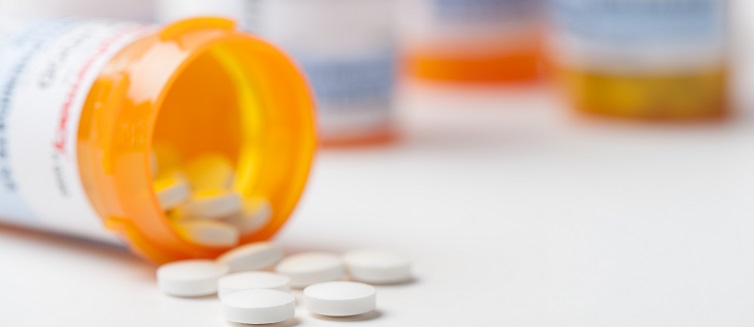Whether you take medicine every day or only when you are sick, it’s important to make a plan for how to store prescription drugs in your home and keep them away from kids and teenagers.
Keeping prescriptions safe goes beyond the traditional baby proofing. Be sure to store drugs away from preteens and teenagers, who might look for medicines to experiment with or abuse. Even if you don’t have children, think about where your drugs are stored before family members or friends with kids come to visit.
More than 90 percent of accidental poisonings occur in the home, and many nonfatal poisonings happen to children under the age of six.
For more information about prescription safety, contact the Pittsburgh Poison Center of UPMC.
Never Miss a Beat!
Subscribe to Our HealthBeat Newsletter!
Thank you for subscribing!
You can now select the specific newsletters you'd like to receive.
You are already subscribed.
Subscribe to more newsletters in our email preference center.
Sorry, an error occurred. Please try again later.
Get Healthy Tips Sent to Your Phone!
4 Tips for Safeguarding Your Medication
Here are four helpful steps for keeping prescriptions safe in your home:
-
Store medicines in their original containers with childproof caps
Place medicines in a high cabinet, perhaps in the kitchen. And take the extra step of locking the cabinet to keep drugs away from teens and younger children.
Not all childproof caps are actually childproof. In cases where children were accidentally exposed to their grandparents’ medicines 45 percent involved child-resistant containers, according to a study cited by the Federal Drug Administration (FDA).
The American Pharmacists Association (APA) reports that grandparents in particular may keep medicines in weekly pill containers that children can easily open. Also, consider where to store your medicines when staying at someone’s home during holidays or vacations.
-
Always call it medicine
You don’t want children to think of medicine as candy, which can tempt them to try to ingest potentially dangerous prescriptions.
Calling it medicine will indicate to your children that it should only be taken when they’re sick or injured, and according to the doctor or pharmacist’s instructions. Make sure your kids know that medicine can be harmful if it’s taken when they’re not sick or if they take too much.
Did you know?
In 1971, the Mr. Yuk sticker was created by the Pittsburgh Poison Center. This symbol is now used to warn adults and children alike of poisonous substances. Mr. Yuk was the first poison education symbol in the United States. Last year, the Pittsburgh Poison Center issued several million of these stickers around the world.
-
Get rid of unused medicines
If there’s no expiration date, get rid of any medicine that’s six months old or older.
Many communities have medicine take-back days that allow you to get rid of old medicines. Contact your local pharmacist or police department (using the nonemergency number) for information. Search online for a disposal location near you, or participate in a National Prescription Drug Take Back Day.
As a secondary option, you can throw most medicines into the trash, says the FDA. Mix them with something people and animals won’t eat, like coffee grounds, sawdust, or kitty litter; then pour the mixture into a small, sealable bag, and dispose in the outside trash. Don’t crush the pills, and remove the prescription labels.
Medicines that are particularly dangerous may have instructions to flush them down the toilet. For example, a transdermal patch containing fentanyl, a strong opioid pain medicine, should be folded in half with the sticky sides together and flushed, according to the FDA. These patches can be dangerous to children and shouldn’t be placed in the trash.
If you’re unsure about what to do with unused medicines, contact your pharmacist.
-
Know the Poison Control Center’s phone number
No matter how hard you work at keeping prescriptions away from kids, accidents can happen —so be prepared.
Memorize the national Poison Control Center’s number (800-222-1222), display it prominently on your refrigerator, and program it into your family’s cell phones.
For more information about prescription drug safety, contact the Pittsburgh Poison Center of UPMC.
About Pittsburgh Poison Center
The Pittsburgh Poison Center is available 24 hours a day, seven days a week, to provide poison information and respond to emergencies. You can call 1-800-222-1222, 24 hours a day, for emergency help. We answer more than 100,000 calls each year from across Pennsylvania, at no cost to callers. Our staff of nurse specialists has extensive training in clinical toxicology. We also created a network of more than 70 hospitals throughout the state for consultation and follow-up treatment of poison exposure. For nearly 50 years, our symbol Mr. Yuk has helped to educate children and adults about poison prevention and poison center awareness. All stickers of Mr. Yuk carry important poison control phone numbers.
